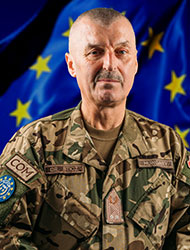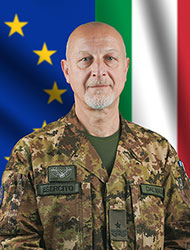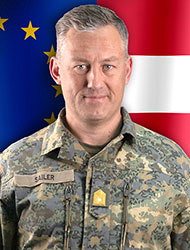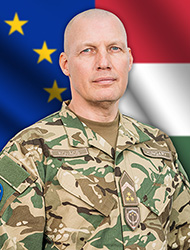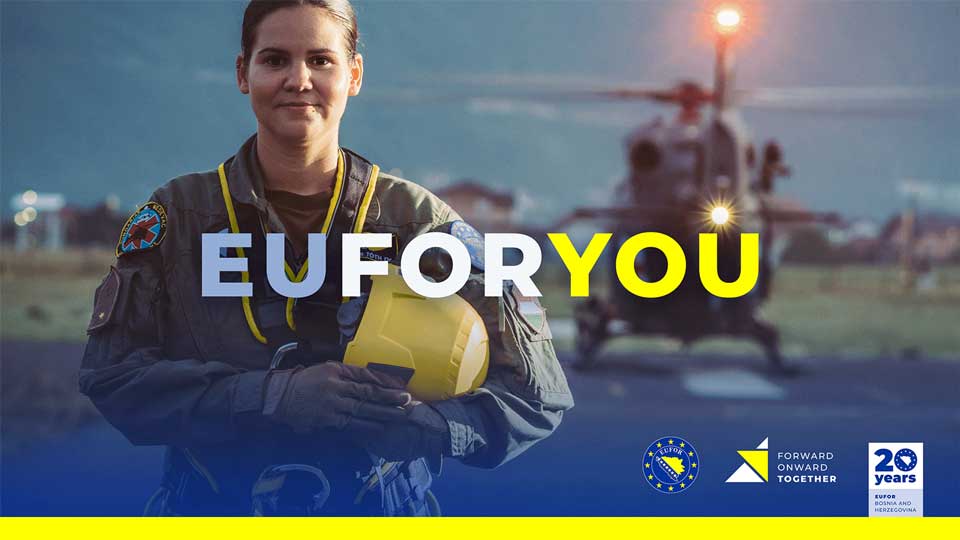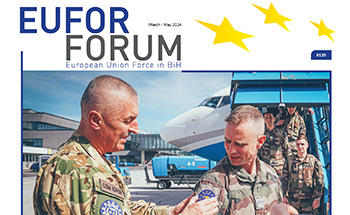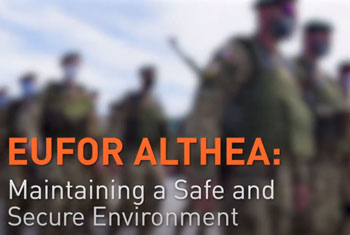The operation
• The EU launched a military operation in Bosnia and Herzegovina (BiH) - (Operation EUFOR - ALTHEA) in December 2004. This follows the decision by NATO to conclude its SFOR mission.
• The EU deployed a robust force (EUFOR) - (6,300 troops) - with a Chapter VII mission to ensure continued compliance with the Dayton/Paris Agreement and to contribute to a safe and secure environment in BiH.
• The key objectives of ALTHEA are:
- to provide deterrence and continued compliance with the responsibility to fulfil the role specified in Annexes 1A and 2 of the Dayton/Paris Agreement (General Framework Agreement for Peace in BiH); and
- to contribute to a safe and secure environment in BiH, in line with its mandate, and to achieve core tasks in the OHR's Mission Implementation Plan and the Stabilisation and Association Process (SAP).
• The EU operation is part of a coherent EU approach. It adds in a significant way to the EU's political engagement, its assistance programmes (its ongoing police and monitoring missions) with a view to helping BiH make further progress towards European integration in the context of the Stabilisation and Association Process.
• United Nations Security Council (UNSC) Resolution 1575, adopted unanimously on 22 November 2004, welcomed the EU’s intention to launch an EU military operation in BiH. It authorised the Member States acting through or in cooperation with the EU to establish a multinational stabilisation force (EUFOR) as a legal successor to SFOR under unified command and control, which will fulfil its missions in relation to the implementation of Annex 1-A and Annex 2 of the Dayton/Paris Agreement. EUFOR will have the main peace stabilisation role under the military aspects of the Peace Agreement.
• The Resolution also welcomed the EU’s increasing engagement in BiH. EUFOR's mandate was extended by UNSCR 1639 (2005) on 21 November 2005.
• UNSC Resolution 1551, adopted unanimously on 9 July 2004, welcomed the EU's intention to launch such a mission.
• The decision by the EU to launch ALTHEA follows the decision by NATO to conclude its successful SFOR-operation.
• ALTHEA will be carried out with recourse to NATO assets and capabilities, on the basis agreed with NATO ("Berlin Plus").
• The Headquarters of EUFOR is established in Sarajevo (Butmir Camp).
• Status of Forces Agreement (SOFA) and Host Nation Support (HNS) arrangements has been established.
• The key supporting tasks of the EU-led force are to; provide support to the International Criminal Tribunal for the Former Yugoslavia (ICTY) and relevant authorities, including the detention of PIFWCs; provide the security environment in which the police can act against the organised criminal network.
EU Political Objectives
A strong commitment to the international community remains necessary in BIH to maintain a secure, self-sustaining and democratic country. The June 2003 Thessaloniki Declaration confirmed that the future of the Western Balkans is within the EU. The Stabilisation and Association Agreement (SAA) is the framework for the European course of BIH, all the way to future accession. It is within this wider context of European integration that a comprehensive policy for addressing BIH’s security needs has to be situated.
EUFOR assists in creating the conditions to deliver the long term political objective of a stable, viable, peaceful and multiethnic BIH, co-operating peacefully with its neighbours and irreversibly on track towards EU membership.
Chain of command
The basic decisions on the operation are taken by the Council of The European Union. The Council decided to launch the operation following its approval of the Operation Plan (OPLAN) and the Rules of Engagement (RoE).
The EU's Political and Security Committee (PSC) exercises the political control and strategic direction of the operation, under the responsibility of the Council. Powers of decision with respect to the objectives and termination of the military operation remains vested in the Council, assisted by the EU Special Representative (EUSR) / High Representative (HR).
The EU Military Committee (EUMC) monitors the proper execution of the EU military operation.
The EU Operation Commander (OpCdr) for ALTHEA with the EU Operation Headquarters (OHQ) is located at SHAPE. Major General Dieter Heidecker has been appointed EU Force Commander.
Overall EU coherence:
The operation reinforces the EU's comprehensive approach towards BIH, and support BIH's progress towards EU integration by its own efforts. The operation is part of the overall European Security and Defence Policy (ESDP) mission in BIH and of a closely co-ordinated EU presence in BIH.
The EUSR promotes overall EU political co-ordination in BIH. EU Commanders co-ordinate closely with the EUSR in BIH with a view to ensuring consistency of the EU military operation with the broader context of the EU activities in BIH.
Budget
Common costs of the EU military operation to be administered by the "ATHENA" mechanism (contributions by Member States on a GDP-based key to finance costs of EU operations having military or defence implications). The common costs of the operation are € 12.5 million. Personnel and other items are on a "costs lie where they fall" basis.
Force Elements
A total of 22 nations, including EU Member States and non-EU Troop Contributing Nations (TCN), provide the necessary capabilities.






